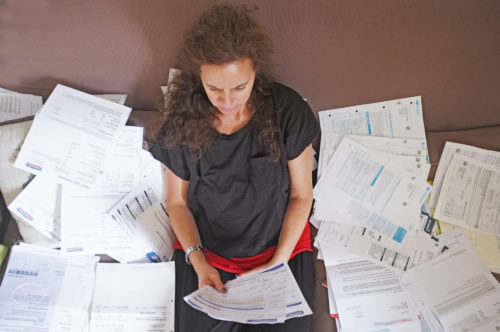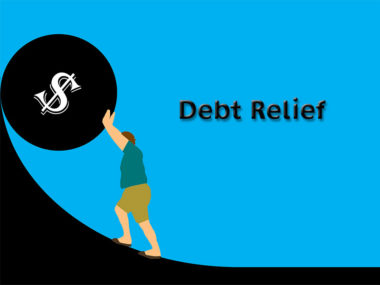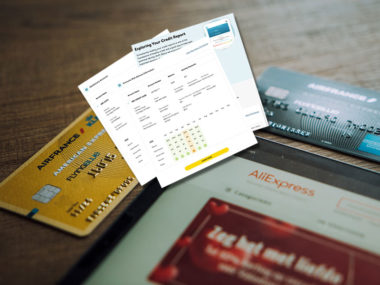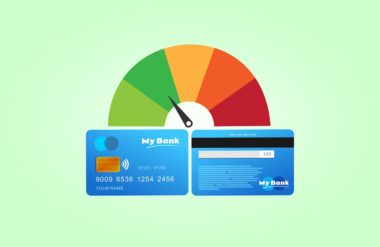You’ve had another stressful and long day at work. You’re looking forward to going home, propping up your feet, and binge watching your latest TV addiction.
But instead, when you get home, there’s a pile of bills waiting for you. They sit there on your counter, menacingly, reminding you of the sudden and impending loss of money you must face. Well, there goes your stress-free evening!
If you’re like most Americans, bills are a main stress point in your life. Additionally, if you’re like most Americans, you have a wide variety of different loans and multiple credit cards. This means you have a lot of bills to pay, and your money is flying out of your wallet in ten different directions. How are you supposed to keep track of it all?
If you’re feeling overwhelmed with the amount of debt you owe to different entities, then you may be relieved to learn about debt consolidation. However, if you’re a cautious and financially smart individual, you may want to read on before you make the consolidation plunge.
Debt consolidation can be extremely beneficial to help overcome overwhelming debt, but it certainly isn’t an option for everyone. How can you know which deals are the best deals for consolidation, and which ones you should avoid? In what way can consolidation be detrimental, and when is it the best option? Here is an introduction to the world of debt consolidation.
Table of Contents
What is Debt Consolidation?
Debt consolidation is a service that can help turn five credit card bills or various loans into a single bill. Essentially, it is a service that combines your accounts, allowing you to pay only a single entity for your credit cards and loans instead of multiple entities. The company that is assisting you to pay off your existing loans for you, and will then negotiate a repayment plan with you for the amount that they payed. Usually — if you get a good service to help you with consolidation — the final product will be a larger loan, but with better repayment options than your previous loans, including lower interest, a longer term of repayment or more installments, and sometimes lower minimum payments as well.
There are different ways to consolidate debt, but not all of them are equal in their effect. Some of the most common methods are:
- Balance Transfer (Credit Card Specific): Some credit cards allow what is known as a balance transfer, allowing you to transfer the balance of one card onto another. This can be helpful if the card you’re transferring to has a lower interest rate and lower minimum payment than your previous cards. However, this can only help with credit card payments, and not with loans.
- Federal Government Consolidation (Student Loan Specific): This is most common with those who are struggling to pay back student loans. The government has set up a couple of options that allow graduated students to consolidate their loans into a single payment.
- Debt Consolidation Loans: Creditors (banks or independent agencies) can also offer loans that help consolidate debt for those who are floundering under too many payments. However, it is easy for these loans to get predatory, and you will want to do your research into each institution before making a decision.
- Secured Loans Vs Unsecured Loans: In addition to who provides the loans, there are two types of debt consolidation loans that you can typically find. One is secured, meaning a large item (such as a car or home) is used as collateral in case you fail to pay back the debt. The other is unsecured, which means there is no item used as collateral, but typically there is a low qualifying amount and a higher interest rate (but that interest rate is typically fixed, and will not change throughout the life of the loan).
Will Consolidation Hurt My Credit Score?
The most important question to ask before considering debt consolidation is “Will it hurt my credit score?” Chances are, when you first sign up, you might see a small negative impact on your credit score. This is due to a couple of factors, most of which can be offset over time with your new loan arrangement.
The first factor is you will be opening up a brand new account, and zero-ing out some older accounts. Depending on the nature of the outstanding debts, it’s sometimes best to not close all those old accounts, as they are directly tied to metrics that determine your credit score. However, because you will also be opening up a fresh new account and piling all the money there, this might be seen as a risky behavior by the credit bureaus. Older accounts with a longer history of payments are better for your credit score, but debt consolidation could be worth the minor risk of seeing your score drop a few points.
The second factor is that your credit score will be checked when opening this account. Just with any other hard inquiry, if you’ve had multiple throughout the year, you will see a slight ding in your score.
However, opening up a new line of credit and consolidating your debts can be beneficial in the long run. It will lower your credit utilization ratio — given that you don’t close out your old accounts — because your available credit will suddenly double, while your debt stays the same. It should be said, you need to be disciplined in not using those old accounts again. Just because the credit is suddenly available, does not mean you can afford to go into more debt.
Additionally, if you follow the best practices and pay everything on time, meeting the minimum payment requirements, you will find a steady rise in your credit score after a few months. Since your credit score weighs those payments higher than any other factor, then those regular payments will go further to repair your credit than starting this process did to hurt it. For more information on credit scores, visit our credit score learning and resource center.
How Do You Know When You Need It?
The biggest concern for people that are considering debt consolidation is determining if their finances are bad enough to need the service. Here are some questions you should ask yourself, and if your answer is yes to most of them, then debt consolidation might be right for you:
- Do you owe $10,000 or more on multiple accounts?
- Are you struggling to make on-time payments that meet the minimum requirements for your various accounts?
- Do you have debt that has gone to or is currently in collections on top of your other bills?
- Have you been trying to renegotiate your interest rates on multiple accounts, but have been unsuccessful?
Once you have determined that you’ll need debt consolidation, your next step will be finding the right consolidation agency for you. Every area of the country has different options, but you’ll want to be on the lookout for the obvious red flags of scammers or predatory loans.
Consolidation Red Flags
Consolidation services can sure seem like a life saver, but not all services are beneficial. Some loan offices might have sneaky repayment plans, while others might actually hurt your credit score. Here are some of the biggest red flags you should look out for when shopping around for a consolidation service:
- Extended Term of the Loan: Some loan offices have sneaky ways of making you pay more, simply by extending the amount of time it will take you complete the loan. For example, if you owe around $15,000 to three different credit cards (with various interest rates and minimum payments). The loan you consolidate to has a lower monthly minimum payment, and a lower interest rate than your other loans, but takes an extra 24 months to pay off. If you compare the amount of money you’ll be paying at the end, you’ll be surprised to find that your current bills are actually cheaper in the long run. In those cases, you’ll want to be conscious of how much you’ll be paying over the lifetime of the loan, and do some thorough homework. If you can afford to pay more than the minimum, you may be able to shorten the term of the new loan — but only if overpayment is allowed by the new lender.
- Losing Special Terms: This is more intended for student loans, as some loan companies offer special terms for unemployed graduates or those that are working within a designated program. When you consolidate your loan, you could very well lose those provisions, and potentially hurt yourself in the process.
- Hidden or Additional Fees: Not all consolidation services play nicely with your money. Some might tack on additional monthly fees for their service. Considering many banks will help you create a loan for free (assuming you are approved), these types of fee-based services are the sort that should be avoided.
- They Pressure You: This could be true for almost any financial service: if they are pressuring you into staying with them, then they probably are not working within your best interests. Meg Bartlet, CFP®, MS, wrote with the XYPlanning Network that financial institutions run on making others feel ashamed for not knowing how to handle their finances. But finances can be difficult, she says, and there is no shame in feeling overwhelmed. She writes: “There are armies of people running financial firms (of whatever stripe) or monetizing a finance podcast or blog who want you to feel ashamed…so that you’ll work with them.” Follow your gut feeling, and do your research when investigating your options.
Debt Consolidation in a Nutshell…
Debt consolidation might not be the right choice for everyone, but if you’re feeling overwhelmed and struggling to stay afloat, then it might be the right choice for you. Take this information to heart, do your homework, and be sure to read all the fine print before you agree to work with a consolidation service. The best services will be the ones that want to help you get better control of your finances, and help you start rebuilding your credit.
Your finances don’t have to be a tangled web of nightmares and late payments. Do yourself — and your credit score — a favor, and start improving your finances now.
Image Source: https://depositphotos.com/





